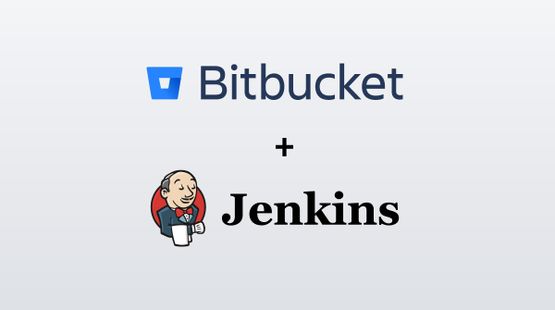Bitbucket vs. Jenkins: Choosing the Right Tools for Continuous Integration
Continuous Integration (CI) is a fundamental practice in modern software development that ensures code changes are integrated into a shared repository regularly. CI tools automate the process of building, testing, and deploying code, leading to faster development cycles and higher-quality software. In this blog post, we’ll compare two popular CI tools, Bitbucket and Jenkins, to help you understand their features and make an informed choice for your development projects.
Bitbucket: A Comprehensive CI/CD Solution
Bitbucket, primarily known as a code hosting platform, also offers built-in CI/CD capabilities. As part of the Atlassian suite of products, Bitbucket’s CI/CD pipelines seamlessly integrate with its code repositories, enhancing the overall development workflow. Here are some key features that make Bitbucket’s CI/CD solution stand out:
Native Integration
Bitbucket’s CI/CD pipelines are natively integrated with its repositories, simplifying the setup process and making it easy for developers to set up automated builds and deployments.
Pipeline Configurations as Code
Bitbucket Pipelines use a simple and intuitive YAML-based configuration to define build and deployment steps, allowing for version control and easier collaboration among team members.
Pre-configured Templates
Bitbucket offers pre-configured pipeline templates for popular languages and frameworks, reducing the setup time for new projects and ensuring best practices are followed.
Seamless Deployment to Other Atlassian Products
If your team uses other Atlassian tools like Jira and Confluence, Bitbucket pipelines provide seamless integration for deploying and tracking changes across the entire development process.
http://informationarray.com/2023/07/20/bitbucket-vs-github-making-the-right-choice-for-your-development-projects/
Jenkins: The Power of Customization and Extensibility
Jenkins is an open-source CI tool known for its flexibility, customization options, and extensive plugin ecosystem. It has been a favorite among developers for many years, offering the following advantages:
Extensive Plugin Support
Jenkins boasts a massive collection of plugins, allowing users to customize their CI/CD workflows to suit their specific needs. Whether you need support for a particular programming language, version control system, or cloud platform, Jenkins likely has a plugin for it.
Master-Slave Architecture
Jenkins operates on a master-slave architecture, enabling distributed builds across multiple nodes. This scalability is advantageous for larger development teams or projects with diverse build requirements.
Highly Customizable Pipelines
Jenkins provides a flexible pipeline DSL (Domain-Specific Language) that allows developers to define their build and deployment steps with precision, granting complete control over the CI process.
Active Community Support
Being open-source, Jenkins enjoys a robust community of users and contributors who actively develop and improve the tool, ensuring its relevance and reliability.
Choosing the Right CI Tool
Choosing between Bitbucket and Jenkins for CI/CD depends on your team’s specific requirements and preferences. Consider the following factors when making your decision:
Integration with Existing Tools
If your team already uses Bitbucket for code hosting and other Atlassian products, Bitbucket Pipelines’ native integration might be the seamless solution you need.
Customization and Extensibility
If your team requires highly customized CI/CD workflows or relies on a specific combination of tools, Jenkins’ vast plugin ecosystem and pipeline flexibility could be the ideal fit.
Ease of Use
Bitbucket Pipelines’ straightforward YAML configurations make it a great choice for teams seeking quick setup and simplified maintenance, while Jenkins may require more effort to configure and manage.
Both Bitbucket and Jenkins are powerful CI/CD tools that cater to different development needs. Bitbucket Pipelines offers seamless integration with its code hosting platform, making it an excellent choice for teams already invested in Atlassian’s ecosystem. On the other hand, Jenkins shines with its customization options and extensive plugin support, making it the preferred tool for teams seeking complete control over their CI/CD workflows.
To make the right choice, assess your team’s technical expertise, project requirements, and existing toolset, and choose the CI tool that aligns best with your development objectives. Whether you opt for Bitbucket or Jenkins, implementing a robust CI/CD strategy will undoubtedly accelerate your software delivery process and improve overall code quality. Happy building!









